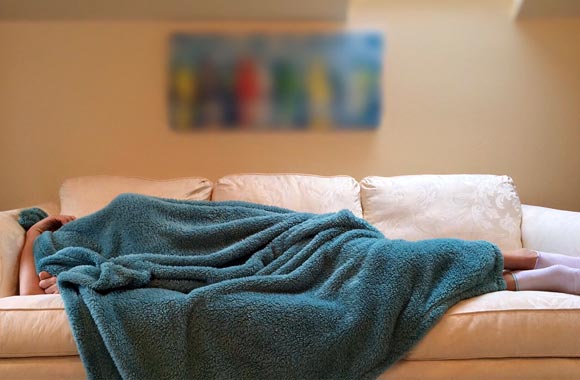How much sleep do you need? The importance of sleep in the cell regeneration process.

How much sleep do you need?
Maybe you wonder how much sleep you need to stay healthy. The answer is that 8 hours of sleep a day is critical for your health.
Each one of us has a distinctive sleep need. Our sleep needs rely on genetic as well as physiological factors and also changes by sex, age, and earlier sleep quantities. Nevertheless, the simple meaning of enough sleep is a sleeping length that is followed by a natural awakening and provides us to feel invigorated and vigilant for the day.
Now people may ask how many hours of sleep one should take. The recommended sleep duration is 8 hours. It can, however, be dependent on the need of a person also. Some people may find 6 to 7 hours of sleep enough for them. A study was done to check the performance of humans in case they take less sleep i.e. sleep of fewer than 8 hours. It was found out that people in the study were considerably sleepier on the day after the night they took a decreased sleep. These people were found to be less fresh and alert as compared to people who took 8 hours of sleep. Their memory was also found to be altered while they performed poor performance. Their mood was also not happy after restricting them to a few hours of sleep.
Taking a sleep of just a few hours can profoundly affect your relations. It can prove to be a danger to public safety as poor sleep can lead to increase chances of motor vehicle accidents as it affects critical ability and skill.
It is therefore suggested to take at least 8 hours of sleep daily. Otherwise, restricted hours of sleep can compromise your attentiveness and performance. Though some people may develop tolerance to a few hours of sleep, they are unaware of these habits’ bad consequences. Sleepless for 7 to 8 hours promote negative mood, feeling of fatigue, and poor memory.
Having a 24/7 standard of living can also disrupt regular sleep patterns: the worldwide economy that comprises round-the-clock industries functioning to bang the competition; extensive use of uncontrollably automated systems to exchange a few words and an increase in work hours make sleeping at usual times difficult. But still, control of our life is in our hands. It is vital to recognize the importance of good health. And for good health, a night of good sleep is required. Sleep can be sufficient if you sleep 7 to 8 hours daily. This length of sleep can be fruitful for you. You will better give your due concentration to your work and can attain whatever you desire.
Everyone’s personal sleep needs differ. In general, most fit adults are made for 16 hours of alertness and require an average of 8 hours of sleep at night. Even so, some people are capable to work without drowsiness or sleepiness after less than 6 hours of sleep. Others can’t carry out their work unless they have slept for 10 hours. Though it depends on people’s desire and needs for sleep, one should take a sleep of 8 hours to enjoy the joys of life fully.

Sleep and brain
Good sleep is critical in maintaining good brain functions. It is even considered a more fundamental way to keep the brain operating properly. The study suggests that sleep is indispensable for memory consolidation. This is based on the fact that important memory-boosting activity takes place during the deepest stages of sleep. When a person is deprived of sleep, how one can expect that brain will function normally? The brain will also be sleep-deprived. This can lead to the compromise of certain important abilities of a person such as creativity, critical thinking skills, problem-solving abilities, etc. Whatever you’re doing either working, studying, or trying to organize life, sleep deprivation is a way to catastrophe.
How sleep functions
Our sleep comprises of full sleep cycle loaded with 5 stages.
Stage 1 is a stage of drowsiness.
Stage 2 is a phase of light sleep.
Stages 3 and 4 are considered deep sleep states.
Stage 5 is rapid eye movement (REM) in which we see dreams and certain physiological changes occur.
It is also hypothesized that memories are strengthened during this REM stage of sleep. This also says that we experience our memories again in our dreams, leading to the creation of a record of events in our minds. Despite the legitimacy of this hypothesis, it is well-known that a lack of sleep harms our cognitive abilities.
Why is sleep so important for our brain health?
Sleep is considered to be a necessity for a good life and body functioning. When you sleep, the brain recalls the prior day’s occurrences, prepares your memory, and generates the release of hormones modifying energy mental acuity, and moods. To carry out this important task, the brain requires a time of 6 – 7 hours. This means you have to sleep 6-7 hours to keep the brain carrying out this important function. You have noticed when you have not taken proper sleep; you feel lethargic, have poor concentration, and have mood disturbances as well as lack creativity, clearly explaining the need for proper sleep.
As we have just discussed that many important physiological changes occur in stage 5. Likewise, stage 3 and 4 sleep i.e. deep sleep is critical too. Here brain performs functions such as hormonal regulation, physical rejuvenation, and growth functions. If a person has not taken it, he will be deprived of these vital processes. He will more be expected to get unwell, feel miserable, gloomy, and even gain a detrimental weight.
In REM sleep the brain processes and carried out functions such as important memories and emotions, actions that are vital for learning, and higher-level reasoning and thought. A lack of stage 5 REM sleep consequences in poor cognitive and social dispensation, troubles with memory, and obscurity in concentrating on anything. Insufficient sleep leads to work performance paucity or poor performance.
Effects on Brain Owing To Sleep Deprivation
Most sleep disorders stop people from falling asleep, which could be a serious health issue.
Sleep-deprived people are likely to suffer from zero activity of the temporal lobe, which contains an important region for speech. You can check this effect by the presence of slurred speech in prolonging the period of a sleep-deprived person.
The parietal lobe carries out problem-solving activities, for instance, math question-solving ability. It may also be affected resulting in a slower ability to solve such questions along with less accuracy.
The frontal lobe, being the most important brain part for carrying out speech, novel and creative thinking, and reasoning is also highly affected due to poor sleep. A such individual finds difficulties in thinking of some imaginative ideas or plans.
Hallucination may also be seen in people with prolonged sleep deprivation.
Thus, a healthy mind and body need proper sleep. It is said that healthy people go to bed at the dusk and wake up at the crack of dawn. So take proper sleep in line with the natural way if you want to enjoy all the activities with delight.

Sleep and The Cell Regeneration Process
Regeneration is the most important function of our body. Most of the regeneration process takes place when we sleep. Sleep is when our bodies fix, rebuild, regenerate and repair. Inadequate deep sleep may be the main cause of different degenerative diseases such as early or rapid aging. Appropriate sleep is, in fact, an anti-aging, life-lengthening, and surreptitious to the spout of Youth!
Quality sleep and rest are essential for the healthy functioning of the body and mind. The human brain is an astonishing mechanism. It allows us to think, imagine, feel, experience, and investigate, it manages all our body functions and it has even its timer. It is necessary to take care of our brains. Similar to cleanliness to maintain our body in order, the brain requires some consideration too. The best method to take care of your brain is to let it have a good sleep.
Our body can renew cells we acquire a new collection of cells within a few years. However, it is very difficult to regenerate the neuron cells present in the brain, and especially if you hold up yourself from regular sleep, and mistreat your body with alcohol, cigarettes, and stress, you’ll observe that your brain begins switching off some of the important functions.
Just about midnight begins the process of physical cell regeneration, which is powered by the brain. If you go to sleep after midnight, then your brain merely has no time to carry out these important functions. So not only sleep but a night of proper sleep is a must. If you go to sleep early and also wake up early, this habit will be fruitful for your health.
It is found that people who go to take a night’s sleep before midnight, have a quicker insight, they interpret and understand faster and even their memory is far better. Ultimately their IQ is also found to be higher. Following standard sleep patterns also enhances life expectancy. All these become possible due to the normal cell regeneration process. Owing to healthy regeneration you will feel young and energetic. Your skin will also glow. Taking proper sleep of 6 to 8 hours has a wonderful impact on your life.
Serotonin levels react to the elevation of the sun as well as too bright, dark, or low sun conditions. Light sets our bodies in action mode and dark sets our bodies in regeneration mode. Thus, if you sleep at night, you are highly getting the benefit of this sleep. It is, therefore, recommended to complete all kinds of work in the day and take good sleep at night. This is, in fact, the rule of nature as well.
Just go after the lore of nature. Our predecessors went to sleep at the dusk and woke up very early. They always handled to accomplish all their work in time. They also remained healthy and active and only a few diseases attacked them. So, following a good sleep at the proper time will give you advantages. The important and healthy process of cell regeneration will take place and you will feel active throughout the day. You can focus on your work better as well.





